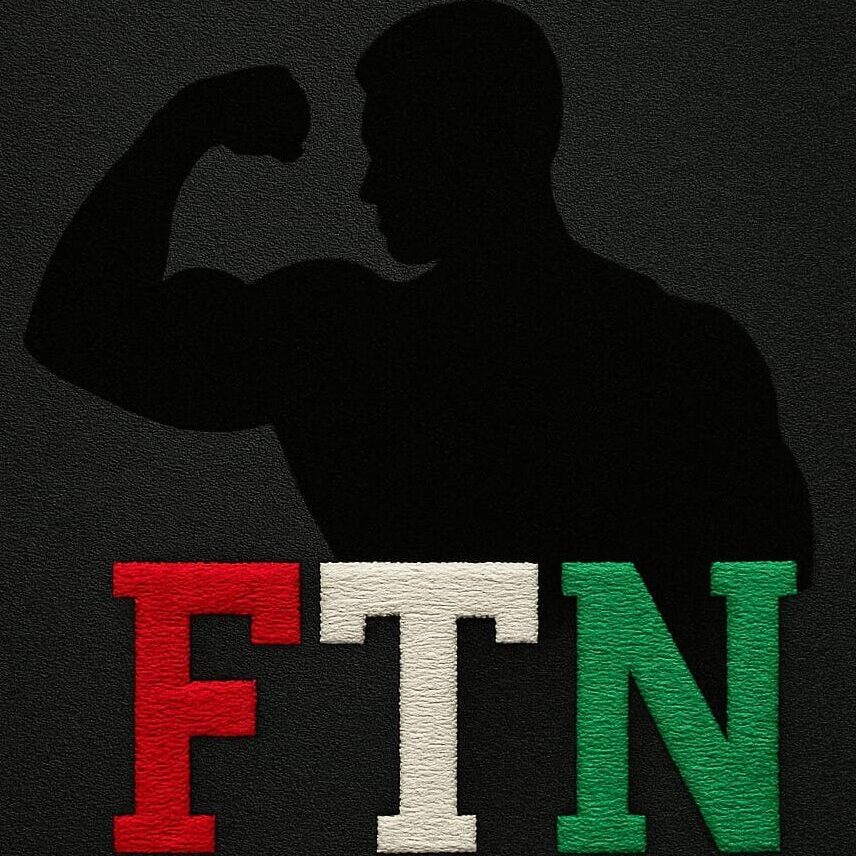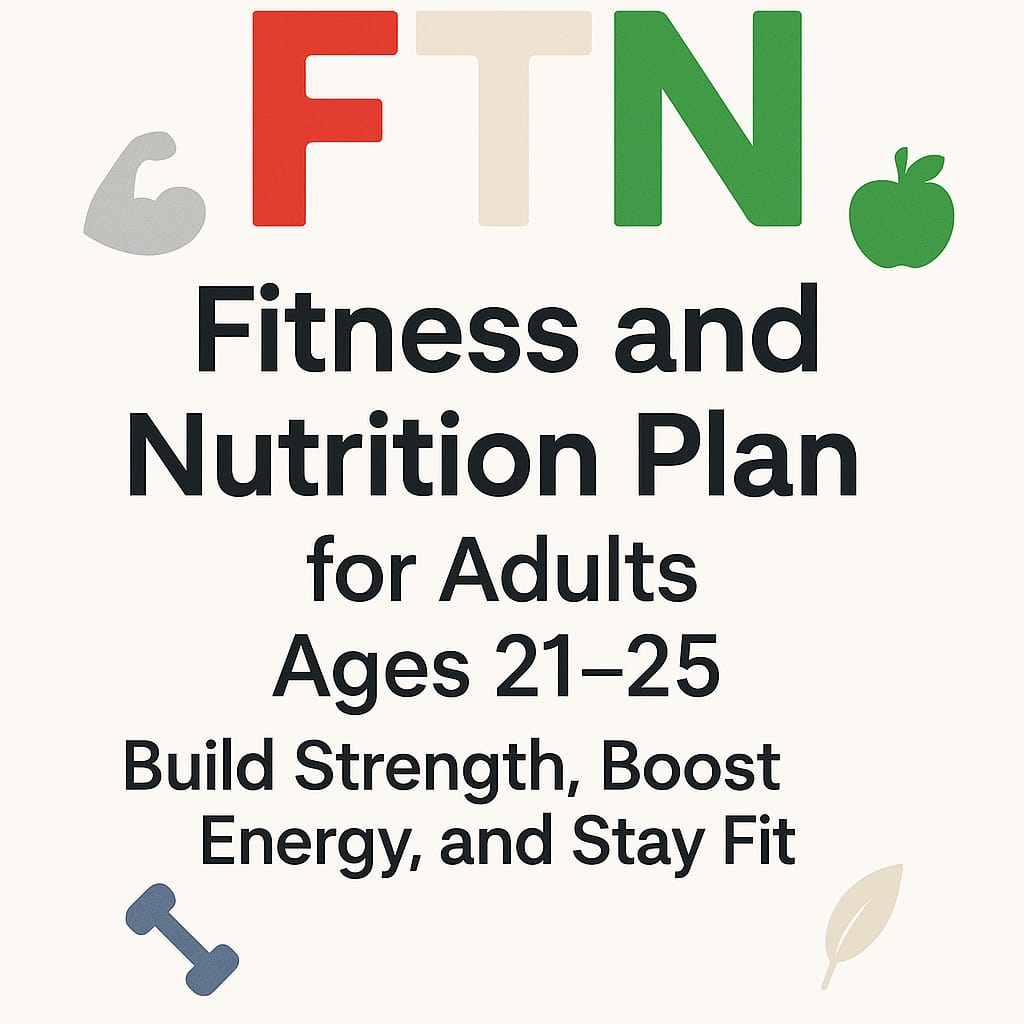Understanding the Importance of Fitness and Nutrition for Young Adults (Ages 21–25)
In your early twenties, life can feel like it’s moving at full speed. Whether you’re juggling college, entering the workforce, or exploring newfound independence, one thing remains essential: your health. For adults aged 21 to 25, building a strong foundation of fitness and nutrition is more than just a lifestyle choice — it’s an investment in your long-term well-being 🧠💪.
🌱 Why Fitness and Nutrition Matter at This Age
Your twenties are a unique window of opportunity. Your metabolism is still working efficiently, your bones are still developing, and your body is at its prime for gaining muscle and strength. But without proper nutrition and physical activity, these advantages can fade quickly.
Engaging in regular exercise boosts cardiovascular health, strengthens muscles and bones, and improves mental clarity. Likewise, a balanced diet supports your immune system, helps regulate hormones, and provides the energy you need to take on life’s daily demands. Together, fitness and nutrition are the pillars that support a productive, energized, and emotionally balanced life.
🎯 Setting Realistic Fitness Goals
Setting goals is the first step toward a consistent and effective fitness routine. But rather than focusing on vague ideas like “getting fit,” aim for clear, actionable goals using the SMART framework:
Specific: Define exactly what you want to achieve.
Measurable: Track your progress with tangible metrics.
Achievable: Start with realistic objectives based on your current abilities.
Relevant: Align your goals with your lifestyle.
Time-bound: Set a deadline to keep yourself accountable.
For instance, instead of saying “I want to run more,” a SMART goal would be: “I want to run 2 miles without stopping within 6 weeks.” 🏃
🏃♀️ Designing a Balanced Workout Routine
A well-rounded fitness plan includes three essential components:
1. Cardio
Cardiovascular exercises like jogging, swimming, or cycling strengthen your heart and lungs. Aim for at least 150 minutes of moderate-intensity cardio per week. These workouts help improve stamina, manage stress, and maintain a healthy weight.
2. Strength Training
Incorporate strength training 2–3 times a week to build muscle, boost metabolism, and protect bone density. You don’t need a fancy gym — bodyweight exercises like squats, lunges, and push-ups are highly effective.
3. Flexibility and Mobility
Don’t underestimate the value of flexibility. Activities like yoga or simple stretching exercises can enhance your range of motion and reduce the risk of injury.
By combining these three types of workouts, you create a routine that supports overall fitness and keeps your body in peak condition. 🧘♂️💥
🍎 Nutrition 101: Macronutrients and Micronutrients
🔹 Macronutrients
These are the nutrients your body needs in large amounts:
Carbohydrates: The main source of energy. Choose whole grains, fruits, and vegetables.
Proteins: Essential for muscle growth and recovery. Opt for lean meats, fish, eggs, beans, and dairy.
Fats: Necessary for brain function and hormone production. Focus on healthy fats from avocados, nuts, seeds, and olive oil.
🔹 Micronutrients
Vitamins and minerals — though needed in smaller quantities — are vital for everything from energy production to bone health. Leafy greens, berries, whole grains, and dairy products are great sources.
📝 Tip: Aim to “eat the rainbow.” The more colorful your plate, the more diverse your nutrient intake.
🍽️ Meal Planning for Strength and Energy
Consistency is key when it comes to eating right. Here’s how to plan meals that fuel your body:
Start with protein in every meal — it supports muscle recovery and keeps you feeling full.
Include complex carbs like quinoa or oats for sustained energy.
Add healthy fats like nuts or avocado to support brain and joint health.
Hydrate with water or herbal teas; limit sugary drinks and alcohol.
🥗 Sample Daily Meal Plan:
Breakfast: Oatmeal with berries and a boiled egg
Lunch: Grilled chicken wrap with veggies and hummus
Snack: Greek yogurt with a handful of almonds
Dinner: Baked salmon, brown rice, and steamed broccoli
Hydration: At least 8–10 glasses of water daily
💧 The Role of Hydration in Fitness
Water is often overlooked, yet it’s vital for:
Regulating body temperature
Transporting nutrients
Aiding digestion
Improving focus and energy levels
A general rule: drink half your body weight in ounces each day (e.g., 150 lbs = 75 oz). Increase your intake during workouts or on hot days. 🥤💦
🧪 What About Supplements
Supplements can be helpful but should never replace whole foods. Some commonly used supplements for this age group include:
Protein powders: For muscle recovery post-workout
Vitamin D: Especially for those not getting enough sun exposure
Omega-3s: Beneficial for heart and brain health
Multivitamins: To fill in any nutritional gaps
⚠️ Always consult a healthcare professional before starting new supplements.
🛌 Rest and Recovery: The Hidden Key
Rest is when your body repairs itself. Without it, progress stalls — no matter how hard you work out or how clean you eat.
Sleep: Aim for 7–9 hours per night. Quality sleep enhances muscle repair, mental health, and metabolism.
Active recovery: Take rest days with light stretching or walking.
Mental breaks: Stress impacts your physical health. Meditation or journaling can help you reset.
💤 Remember: recovery is not laziness — it’s part of the plan.
💬 Staying Motivated and Overcoming Challenges
Fitness is a journey, not a destination. Here’s how to stay on track:
Set mini goals and reward yourself for reaching them 🎯
Track your progress with photos, apps, or journals
Find a workout buddy or join a fitness class for accountability
Change things up to avoid boredom (try dance, hiking, or group workouts)
It’s normal to face obstacles — late nights, busy schedules, self-doubt — but don’t let them derail you. Remind yourself why you started.
👨👩👧👦 Involve Your Community
Healthy habits are easier to maintain with support. Share your goals with friends or family, or follow fitness creators online. Having a community adds fun and accountability to your journey.
🧠 Final Thoughts
Your early twenties are a powerful time to build healthy habits that will serve you for decades to come. By combining smart fitness practices, balanced nutrition, and mindful recovery, you create a life of strength, energy, and resilience.
Don’t aim for perfection — aim for progress. Your health journey is yours to shape, one day, one workout, and one meal at a time. 💚💪
Concept Summary
💧 Hydrate Before Meals Drinking 2 glasses of water before each meal helps reduce hunger and improves digestion.
🥗 Smart Plate Division Use a simple visual formula: half vegetables, a quarter protein, a quarter carbs.
🔄 Meal Rotation Strategy Choose 3 core meals and rotate them across the week to stay consistent without overthinking.
🚫 Ditch Calorie Obsession Focus on food quality and satiety signals rather than strict calorie counting.
🍗 Prioritize Protein First Eating protein first helps control cravings and supports lean muscle building.
💬 Author Commentary (my Personal Take):
What I appreciate most about this video is how it cuts through all the noise with clear, science-backed advice.
Rather than promoting restrictive diets, it emphasizes hydration, simple meal structure, and practical consistency — exactly what adults aged 21–25 need as they build healthy long-term routines.
I especially liked the “3-meal rotation” strategy. It’s smart, reduces decision fatigue, and makes clean eating more realistic — even with a busy lifestyle

